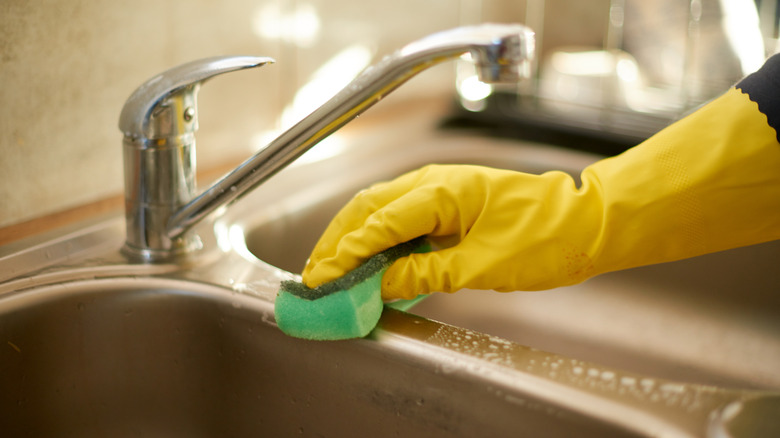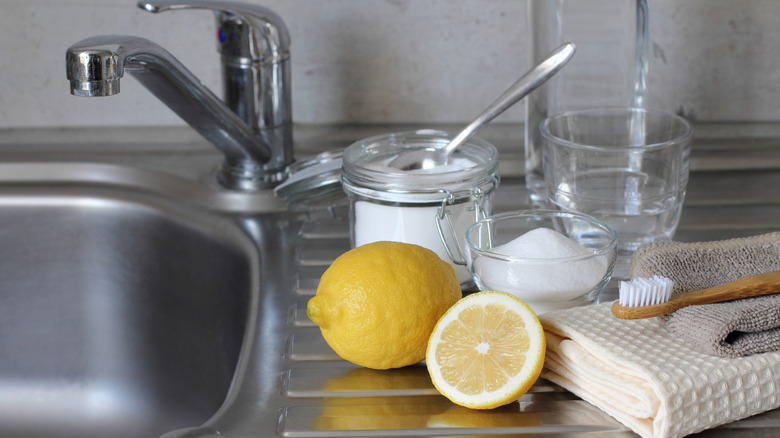How To Clean A Stainless Steel Sink Without Causing Damage
We may receive a commission on purchases made from links.
Have you ever searched your kitchen trash for the source of an unpleasant odor only to discover it's coming from your sink? If so, don't be ashamed. The standard kitchen basin harbors more bacteria, yeast, and mold than other places in your home so it can get funky. While you may be tempted to tackle it with bleach or oven cleaners, resist from giving in if you have a stainless steel sink. This is because they can cause corrosion. Instead, use household ingredients like baking soda and vinegar to keep things in check without damaging it.
To prevent bacteria buildup, you should clean your sink at least once a week. Start off by clearing it out and rinsing away any debris or food scraps with warm water. After you're done, sprinkle baking soda over the entire surface. Then, scrub it using a damp microfiber cloth or sponge. As you work, the baking soda will form a paste that will polish the stainless steel. Finish off by thoroughly rinsing your sink with warm water and using a microfiber cloth or sponge to wipe off any residue.
For sinks with a lot of smudges or build-up, use diluted white vinegar. Simply use a spray bottle to make a 1:1 solution of vinegar and water. Then, spray it on your basin, let it sit for one to two minutes, and rinse it off. When you're done cleaning, thoroughly dry it and apply a thin layer of olive oil to protect it.
What other products can you use on stainless steel?
If you'd rather not use kitchen staples to clean your stainless steel sink, there are a number of cleaners that are safe for stainless steel like Bar Keepers Friend or Weiman Stainless Steel Cleaner and Polish. With these products, all you need to do is spray them on and wipe the residue off with a damp sponge.
However, if you want to keep your stainless steel sink in pristine condition, there's one other thing to be mindful of. You may be tempted to use steel wool to give your basin a thorough scrub. But avoid cleaning stainless steel sinks with steel wool at all costs. Rather than buffing it, these scrubbers can cause scratches and make it look duller. Plus, they're so abrasive that they can remove the protective film naturally produced by stainless steel, leaving your basin vulnerable to rust. Although you can reform the barrier, it's not worth messing around with when there are plenty of other cleaning options available.
While cleaning your basin, it's good to address your drain, too. If you want to make your own DIY drain cleaner, you can once again turn to baking soda and vinegar. Just pour ½ a cup of baking soda down your drain and follow it up with ½ cup of white vinegar. Give them 15 to 30 minutes, then dump a pot of boiling water to flush down the loosened gunk.

